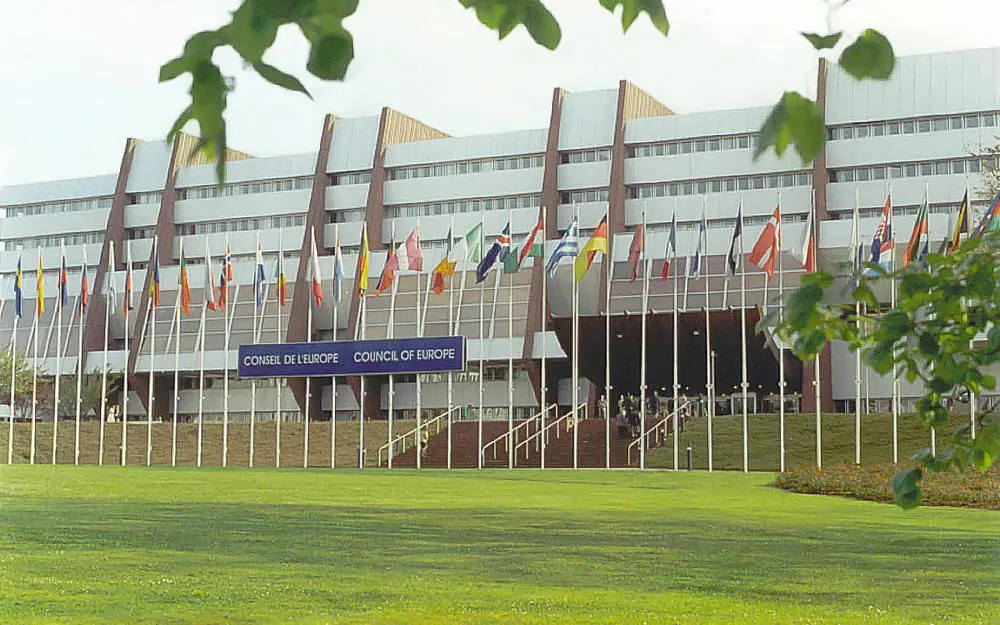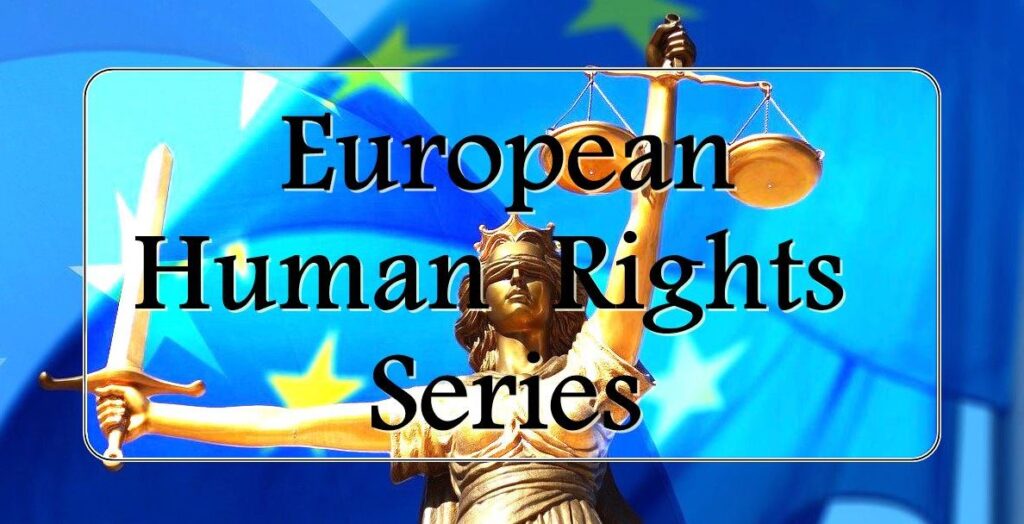In a surprise move, the Committee on Bioethics of the Council of Europe shoved the hot potato of the possible new legal instrument on the use of coercive measures in psychiatry, that the committee had drafted, on to the senior decision-making body of the Council of Europe for it to take the decision on it. The Committee itself did not give the document a green stamp, that is, vouch for its need and compliance with international human rights. The Committee on Bioethics instead through a vote decided to present it to the Committee of Ministers. It was done without a final discussion on which to base the voting. The Committee on Bioethics had started preparing this possible new instrument, technically it’s a Protocol to the Biomedical Convention, in 2011. The Committee has since worked on it at every one of its meetings during the last decade.
The text was originally intended to be completed in 2013, but it was soon found that there were major legal complications related to it, as it contradicts an international human rights convention ratified by 46 of the 47 Council of Europe member states. The Committee nevertheless proceeded while opening up for input from various stakeholders.
It received dozens from qualified parties in a public consultation, such as the European Unions’ Fundamental Rights Agency (FRA), the United Nations human rights mechanism and a number of international organizations of persons with psychosocial disabilities. The Committee listened and allowed stakeholders to attend its meetings and it posted selected information on the work on its website. But the direction in the large perspective did not change. This continued up to June 2021, when the final discussion and vote was planned.
Postponing the vote
The executive body of the Committee, called the Bureau, prior to the Committee’s meeting in June, however recommended to “postpone the vote on the draft Additional Protocol to the 19th plenary meeting (November 2021)”. The Committee’s 47 members were presented with this recommendation from its Bureau and with no discussion was asked to vote on the postponement. 23 voted in favour while a number abstained or voted against, the result was that it was postponed. The final extensive review and discussion, before voting on the validity of the text, was therefore expected to take place in the meeting of 2nd November.
Following the June meeting, the Secretary of the Committee on Bioethics, Ms Laurence Lwoff presented the decision to postpone the voting to its immediate senior body, the Steering Committee for Human Rights. She mentioned in details the state of the work related to the drafted Protocol. In this regard, she noted the decision of the Committee on Bioethics to postpone its vote on the drafted Protocol to its next meeting in November.
The Steering Committee for Human Rights was also informed that the advisory opinion requested from the European Court of Human Rights on legal issues concerning the interpretation of some provisions of the Convention on Biomedicine (also known as the Oviedo Convention) was still pending.
This request for an advisory opinion per the Committee “could concern the interpretation of some provisions of the Oviedo Convention, in particular concerning involuntary treatment (Article 7 of the Oviedo Convention) and the conditions for the application of possible restrictions on the exercise of the rights and protection provisions contained in this Convention (Article 26).”
The European Court is the judicial body that oversees and enforces the European Convention on Human Rights. The Convention that is the reference text of the Convention on Biomedicine, and particularly its Article 5, paragraph 1 (e) on which Article 7 of the Oviedo Convention is based.
The European Court of Human Rights in September rendered a final decision that it would not accept the request for an advisory opinion submitted by the Committee on Bioethics because the questions raised did not fall within the Court’s competence. The Committee on Bioethics with this reject now stands alone in its position defending the need for a new legal instrument on the use of coercive measures in psychiatry. A position which the United Nations human rights mechanism have clearly stated violate the United Nations’ Convention on the Rights of persons with Disabilities (CRPD).
“Involuntary commitment of persons with disabilities on health care grounds contradicts the absolute ban on deprivation of liberty on the basis of impairments (article 14(1)(b)) and the principle of free and informed consent of the person concerned for health care (article 25).”
United Nations Committee on the Rights of persons with Disabilities, Statement to the Council of Europe’s Committee on Bioethics, published in DH-BIO/INF (2015) 20
Decisive meeting
In the meeting of the Committee on Bioethics of 2nd November this information was not provided to its members. The members were simply provided directions on the voting and its procedure. The stated objective of the vote was phrased as a decision if the committee should “present the draft Additional Protocol to the Committee of Ministers with a view to a decision.”
The attending delegations and other participants were not given an opportunity to speak or discuss the drafted protocol before the vote, the intention was clearly that there should be no discussion prior to the vote. The participants included representatives of significant stakeholders such as the European Disability Forum, Mental Health Europe, and European Network for (Ex-)Users and Survivors of Psychiatry. The vote was entirely on the question if the drafted protocol was to be given to the Committee of Ministers.
Member of the Council of Europe’s Parliamentary Assembly, Ms Reina de Bruijn-Wezeman, who had been the Rapporteur on the Parliamentary Report “Ending coercion in mental health: the need for a human rights-based approach” for the Assembly’s Committee on Social Affairs, Health and Sustainable Development nevertheless asked to be allowed to give a statement, especially in view of her expertise, which was then granted. The report she had been the Rapporteur on had resulted in a Parliamentary Assembly Recommendation and a Resolution, that specifically dealt with the matter the drafted Protocol concerned.
Ms Reina de Bruijn-Wezeman reminded the members of the Committee on Bioethics, who were to vote on presenting the drafted Protocol to the Committee of Ministers, about the incompatibility of the drafted Protocol with the UN Convention on the Rights of Persons with Disabilities and generally the incompatibility with the human rights concept.
The voting then took place, and notably with a significant number of technical issues, at least one of the Committee members was claiming they could vote twice, some that their vote was not counted by the system, and some that the system didn’t recognise them as voters. Of the 47 members of the Committee only 20 could vote via the electronic system, the rest had to vote by sending an email to the Secretariat. The final result was that the decision was approved with 28 in favour, 7 abstentions and 1 against.
Following the vote, Finland, Switzerland, Denmark and Belgium made statements explaining that their vote was solely on the procedural decision to forward the draft to the Committee of Ministers and did not indicate the position of their country on the content of the draft protocol.
Finland made a proposal for future recommendations on ending coercion in psychiatry.
Ms Reina de Bruijn-Wezeman was surprised that some countries stated this was only a procedural voting. She told The European Times, “I see it different, that the Bioethics is responsible for their advice to the Committee of Ministers. They are responsible for what they were voting for. It is too easy to say it is only a procedural voting and it is now a political issue, and the Committee of Ministers has to decide on the additional Protocol.”
An opinion that has been shared by other participants among the organizations of persons with psychosocial disabilities.
The Secretary of the Committee on Bioethics declined on behalf of the Committee to provide a statement on the meeting, referring to the formal decisions of the Committee, that will be adopted at the end of the meeting and then published.
This article has been referenced by EDF








